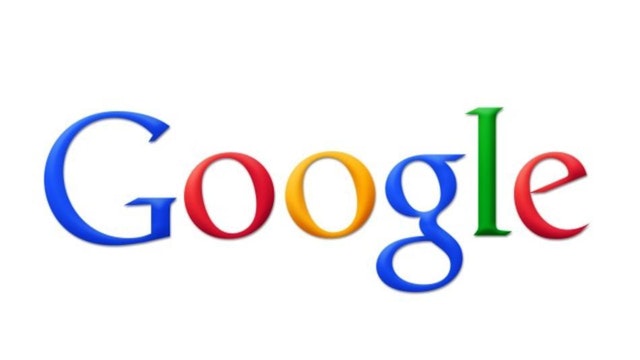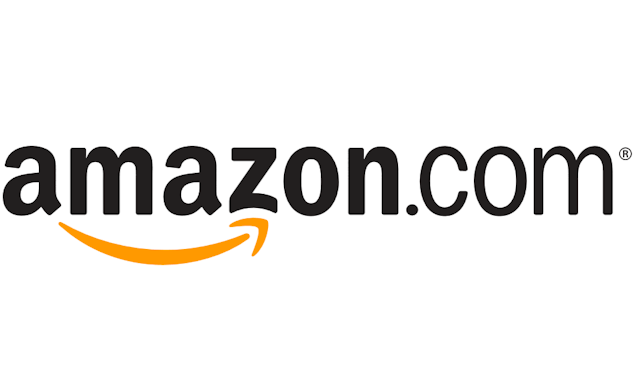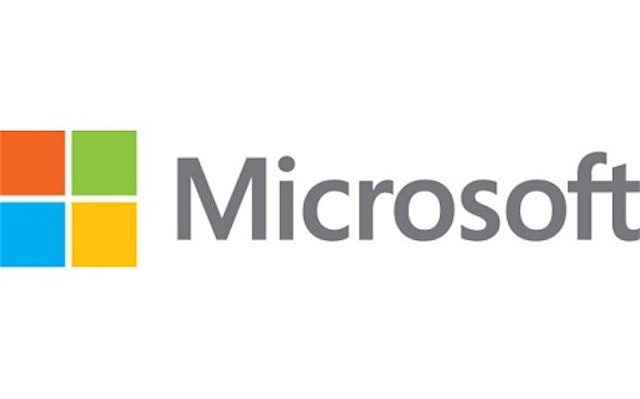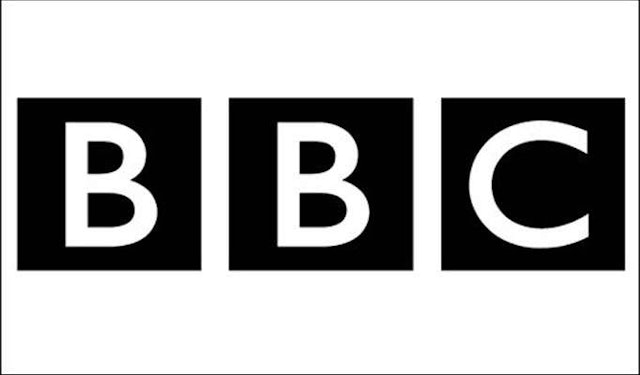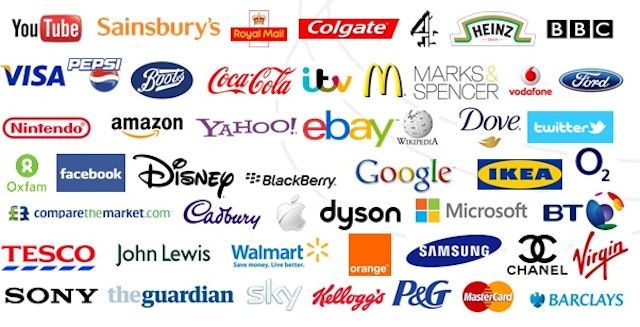As Google and Amazon beat Apple and Facebook in Ipsos Mori’s Top 100 Most Influential Brands study, Jessica Davies takes a look at what makes an influential brand.
The survey of 1,000 UK consumers centred on five overarching themes: trustworthiness, leading edge, corporate citizenship which included environmental responsibility, engagement, and presence.The top five brands in the index – Google, Amazon, BBC, Microsoft and eBay – generate high ratings in all categories but stole the edge on competitors due to their use of technology, either to adapt to existing consumer needs or shape and change behaviours. The top 10 positions went to a mix of pureplay and traditional legacy brands, with Microsoft taking third position, having scored highly for product innovation and being classed as a leading edge brand. The BBC meanwhile came in at fourth with consumers maintaining high levels of trust and engagement with the brand. eBay took fifth position, with respondents citing the online retailer as both trustworthy and leading edge. People spend an average of 17 minutes on eBay assessing and reassessing bids, and it was cited as having “changed the consumer landscape”, by prompting new behaviours and meeting existing demands, according to the study.Apple missed out on a top five slot, trailing Google in sixth position. However it was classed as a leading edge and iconic brand, just not to the same extent as those companies in the top five. Mistakes made over the fact it failed to include Google Maps – a superior mapping product to its own version – on its iPhone 5 were among reasons why it ranked lower in the list, according to the report.Facebook also missed out on a top five position due to the fact it does not yet command the same level of trust as the top five. However, it is regarded as leading edge and has shaped people’s behaviour so took seventh position, leaving Twitter at 47th.Marks & Spencer was the top ranking high street retailer, finishing in eighth position with respondents praising its strong presence, trustworthiness and its delivery of a consistent message.Royal Mail came in ninth overall, also scoring high on trust as well as for managing to remain relevant in the evolving online landscape, while Visa takes 10th place having scored highly for its strong presence.The report found a high correlation between those brands with the highest influence and those with biggest market share – proving that influence does contribute to bottom line. But, according to Ipsos ASI director Gareth Jones, the results show that a strong brand presence, largely driven by advertising, is not enough to ensure a place in the top 10 most influential brands in consumers’ minds. He said: “Tailoring products and services to how people live their lives and even changing their behaviours by identifying their needs are the reasons why these brands have reached the top 10. You don’t have to be a technology brand to be seen as leading edge, even using technology in small ways such as to allow shopping online and picking up in-store – that is the kind of thing that can change how consumers behave.”
1. Google
While it may come as no surprise that Google took number one slot in the rankings, it is in fact one of the youngest brands on the list. Its pioneering technology has seen it dominate the search landscape – particularly in the UK where its brand has become interchangeable with the verb ‘to search’.It is an ongoing product innovator, releasing rafts of products that have irrevocably changed the consumer and advertising landscape. Of course it has had its failures and it has pulled the plug on products that haven’t worked quite as well as it would have liked (the latest victim being Google Affiliate Network). Yet on the whole it is revered by consumers for its efficiency and speed.Google also has a distinctive look and design which it carries across its products and for that reason it is perceived to stand out, according to Ipsos Mori.Ipsos ASI director Gareth Jones says: “Its plain, minimalist design has not significantly changed since its inception in 1998. People look forward to the Google doodles, modifications or humorous additions, and they attract a lot of tweets.“What has changed is the proliferation of other products and services the brand now offers. Not everything Google has tried has come off but mapping, email, web browsing, social networking and video hosting certainly have and are huge successes in their own right. YouTube alone is a powerhouse brand, sitting just outside our own Top 10 at number 11.“This combination of trust and leading edge credentials was highlighted only recently with the launch of Apple Maps. Apple decided to remove Google Maps from its products and replace it with its own mapping software. The consumer and media response was negative and hostile, highlighting the quality of Google Maps over Apple Maps, leading to an apology from Apple CEO Tim Cook.”
2. Amazon
The second most influential brand in the UK is Amazon – the world’s largest online retailer and the UK’s biggest bookseller.Interestingly, for a company that has become one of the biggest threats to the high street, Amazon is regarded by respondents to the survey as a highly trustworthy brand as well as leading edge. Ipsos Mori explains that this is largely due to the tailored recommendation method Amazon uses, monitoring individuals’ browsing habits, location and purchase history to serve personally relevant offers and communications. This not only meets consumers’ existing needs but anticipates future needs based on their preferences, and is a system other brands can aspire to and consumers have come to expect. It has shaped the way people behave and shop online and will continue to evolve and add further products to its arsenal, continuing to influence both consumers and other brands.
3. Microsoft
Microsoft invests in more research and development than any of its Silicon competitors, according to Ipsos Mori – a factor which has led to a widespread acceptance that it will continue to innovate and iterate products at break-neck speed well into the future.Windows innovations have become a permanent fixture, while the Xbox games console continues to go from strength to strength. Xbox is now positioned as an entertainment hub rather than a gaming platform, following the raft of major content deals Microsoft has struck with broadcasters and entertainment providers including the BBC, Channel 4, Netflix and LOVEFiLM. Microsoft Search Network’s general manager David Pann says the firm is gearing up to unleash a “new breed” of creative ad formats across the Microsoft online product range, which have “never been seen before” and which could combine the best elements of its current formats such as Bing ads and Xbox’s NuAds to create the true seamless, consistent, engaging and enriching consumer journey, from TV to gaming to online and mobile devices. Pann also believes it will be voice and motion that dominate the search landscape in years to come, accelerated by both Microsoft and Google’s innovations in this space. The traditional type-based keywords which have been the bedrock of search since its inception will be a thing of the past, he adds.
4. BBC
Although the BBC has had a turbulent year following the Jimmy Savile scandal and some unsettling reshuffles at the top table as a direct result, these factors don’t seem to have dented its place in people’s hearts as a bit of a national treasure and, from the results of this report, an “iconic symbol of British pride” and one which people view as a “reliable” and “trustworthy” source of information.It has also managed to stay “highly relevant” in a continuously evolving landscape with new product innovation, according to Ipsos Mori, making it the only traditional media brand to compete with the four other technology giants in the top five.It cultivates a very open approach with customers, using online channels to gauge feedback of new products, which it generally keeps in rolling beta, so it can refine and hone according to their wishes.It has streamlined its online portfolio, cutting away much of the wastage of previous years to centre its online proposition around 10 core products. These products, which include news, sport, homepage, and iPlayer, are then distributed to the four main screens (connected TVs, desktop, smartphones and tablets) with focus on ensuring a consistent, seamless user experience.
Meet the Influencers
Ralph Rivera, director of future media, BBC: “2012 was the year that digital became mainstream and the BBC set the new digital standard for large event coverage, online broadcast and digital innovation at the London Olympics. Our aspiration was that just as the Coronation did for TV in 1953, the Olympics would do for digital in 2012. “The demand and feedback we saw from audiences accessing our Olympics content online, whenever they wanted, on the devices they chose, exceeded our expectations and helped fulfil this aspiration. “Meanwhile the iPlayer had a record 2.32 billion requests for programmes and shifted from PCs and early adopter devices like game consoles to screens used by all audiences. Mobile, tablet, and connected TV skyrocketed, with a particular emphasis on audiences watching iPlayer on the go.”
Martin Squires, head of customer insights, Boots: “It’s tricky for a 140-year-old brand to be innovative, but our presence is strong and with 2,400 stores in the UK only five per cent of the population doesn’t live within 15 minutes of a Boots. “In order to adapt to people’s changing needs you have to really understand them and the key driver for this is our data insight. We take data protection very seriously. Customers don’t necessarily understand the 10 key points of the EU data protection act, but they understand the basics. So they will care if their data is left on a laptop on a train, and they won’t want you to flog it to other people. They are happy for you to use it as long as it is in their interest – it must never be used to disadvantage them or to send them things that aren’t relevant – then they will think you don’t understand them and you will lose that brand trust.”
Alexander von Schirmeister, VP of marketing, eBay: “eBay has come a long way since its origins as the original auction site. Today we partner with over 100 high street brands, and more than 70 per cent of items bought on eBay today are new and purchased at a fixed price.“As we’ve evolved, so have consumer behaviours and expectations. That’s why we’re thrilled to be named one of the most influential brands in the UK, by British consumers. It reflects the fact that eBay has engaged with the public, connecting people to the things they need and love, anytime, anywhere, on any device. “We partner with sellers, large and small, connecting them with the 17 million shoppers who visit our site every month. What’s important is that we’re a partner, never a competitor, and our purpose is to enable their success on the eBay marketplace.”
Top 100 Most Influential Brands
1 Google2 Amazon3 Microsoft4 BBC5 eBay6 Apple7 Facebook8 Marks & Spencer9 Royal Mail10 Visa11 YouTube12 Tesco13 Cadbury14 MasterCard15 Boots16 Wikipedia17 Samsung18 Sainsbury's19 SONY20 ITV21 Heinz22 Coca-Cola23 Channel 424 BT25 Virgin26 Oxfam27 Dyson28 Sky29 Colgate30 Kellogg's31 Nintendo32 BlackBerry33 Dove34 McDonald's35 Compare The Market36 The Guardian37 John Lewis38 Disney39 Ford40 Yahoo!41 Vodafone42 Orange43 IKEA44 O245 Procter & Gamble (P&G)46 Pepsi47 Twitter48 Chanel49 Wal-Mart50 Barclays51 British Airways52 Innocent53 Dell54 PG Tips55 Gillette56 Shell57 HSBC58 Durex59 IBM60 Nestlé61 Mars62 Starbucks63 Volkswagen64 Levi's65 Groupon66 Red Bull67 Warner Brothers68 MINI69 Ryanair70 Unilever71 L'Oréal72 The Daily Mail73 Honda74 Topshop75 Adidas76 Guinness77 BMW78 Nike79 Toyota80 Lynx81 LG82 Manchester United83 Lovefilm84 Mercedes85 American Express86 Smirnoff87 The Sun88 Stella Artois89 Landrover90 Jaguar91 Pizza Express92 Burberry93 Kraft94 Harrods95 GSK96 Ferrari97 Bayer98 General Motors99 Danone100 Expedia
